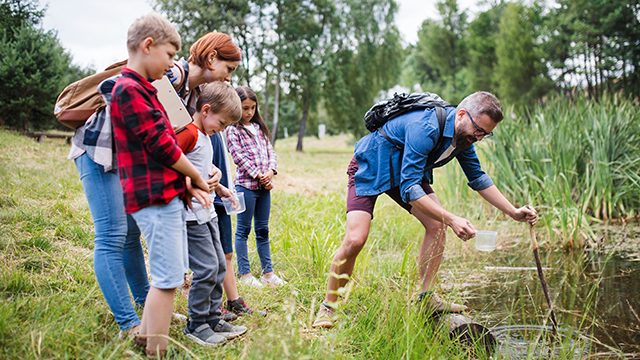Nature and environmental education is becoming increasingly important today to encourage young generations to respect nature and raise environmental awareness. By focusing on nature and environmental education, schools organize various programs and activities to teach students the importance of nature and raise individuals who are sensitive to environmental issues.
Nature and environmental education not only teaches students about the importance of natural life, but also encourages them to explore the natural environment. Nature trips organized in schools, visits to environmental areas such as natural parks, forests and rivers allow students to see the beauty of natural life. Such activities increase students’ interest in nature and strengthen their commitment to the natural environment.
In addition, nature and environmental education activities organized in schools inform students about environmental issues and raise their awareness of environmentally friendly behaviors. Lectures and workshops on topics such as recycling, water and energy conservation, environmental pollution and biodiversity help students understand environmental problems and find solutions. This helps young generations to become environmentally conscious and builds the awareness needed for a sustainable future.
Nature and environmental education in schools increases students’ interaction with nature and encourages them to spend more time outdoors. Activities such as playing in nature, nature walks, camping and nature observation support students’ physical health and well-being, while at the same time creating an emotional connection with nature. Such experiences reduce students’ stress, develop their creativity and increase their self-confidence.
Nature and environmental education can also improve students’ academic achievement. Research shows that students who interact with the natural environment are more successful in their lessons and have higher academic achievement. This shows that nature and environmental education increases students’ attention, increases their motivation to learn and enables them to participate more actively in the learning process.
Nature and environmental education programs in schools provide an important opportunity for students to acquire sustainable life skills. Practical applications addressing topics such as gardening, organic farming, waste management and natural living skills help students adopt a sustainable lifestyle and act in an environmentally responsible way. Such skills help younger generations to do less harm to the environment and use natural resources more efficiently in their future lives.
As a result, nature and environmental education programs in schools are an important tool for young generations to respect nature. These programs teach students the value of nature, raise individuals who are sensitive to environmental problems and create the necessary awareness for a sustainable future. Therefore, the importance of nature and environmental education in schools is increasing and more investment is needed in this area.



